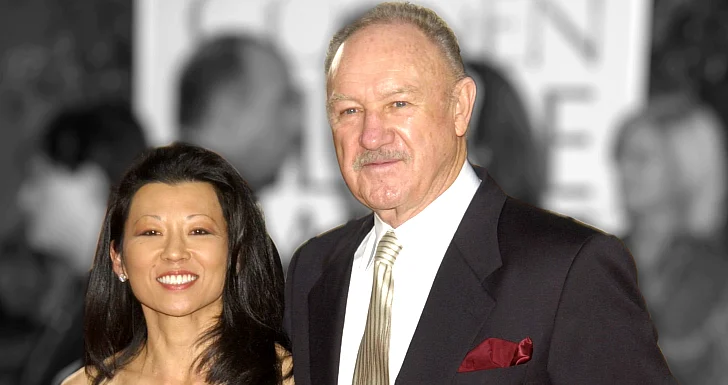T he Long Journey Out of Opioid Dependency
“I was in so much pain that, some days, when I came home from work, I would sit on my couch, not move until the next morning, without eating…”
Jean-Marie, a fifty-year-old glazier, remembers vividly the agony that consumed him after being diagnosed with degenerative disc disease.
In 2012, a scan revealed a spinal birth defect that led to the degeneration of his vertebral discs. His doctors first prescribed painkillers and muscle relaxants, but the relief was short-lived. Subsequently, they turned to a powerful painkiller – sustained-release morphine, in a brand called Skenan.
No doctor warned him of the risk of dependency associated with high doses. Jean-Marie admits he didn’t read the instructions. For a week, the pain subsided. When it inevitably returned, his emergency fix provided temporary relief.
“I was in the moon,” he confided to his doctor, hoping for a solution. The doctor, seeming unfazed, suggested yet another form of morphine – Actiskenan, a faster-acting morphine. He took six tablets a day. “I took it to be able to work: you are in pain, you take one and you can leave,” he shared with a sigh.
Jean-Marie was taking around ten pills a day. He became dependent.
A Spiral of Dependency
Every three months, his prescription was renewed. No physical examinations, no probing questions.
Then, in 2017, the inevitable happened. Vomiting, sweating, diarrhea. He found himself in the emergency room, consumed by the agony of withdrawal.
“They gave me my dose, and I felt better,” he recalls.
The emergency doctor pointed him toward addressing his addiction. Referral in hand, Jean-Marie found himself at the university addiction service in Lyon, under the care
of Dr. Benjamin Rolland, who had recently founded the Lyon Resource Center for Addiction in May 2023. Slowly, month by month, Jean-Marie began to wean himself off the drugs that had come to both soothe and enslave him.
One question haunts him: why wasn’t he warned? “Why was I allowed to gorge myself on medications from 2012 to 2017? Why didn’t anyone tell me?”. The emotional wound of neglect persists.
An Ongoing Challenge
For many, opioids provide relief from agonizing pain. But they also hold a dangerous potency. Opioids encompass both natural substances like morphine, codeine, and synthetic ones like fentanyl or tramadol. Due to their effectiveness in combatting moderate to severe pain, often stemming from conditions like cancer, post-surgical recovery, or chronic pain
These drugs target opioid receptors within the brain, playing a key role in regulating pain perception. They also significantly elevate feelings of pleasure, reward, and well-being.
Walking the tightrope between pain relief and addiction is a complex and delicate process.
This is a story of navigating those complexities.
It’s an ongoing battle.
What are the potential dangers of long-term opioid use for pain management.
## Hooked: A Discussion on Opioid Dependency
**Interviewer:** Welcome back to the show. Today, we’re tackling a difficult but vital topic: opioid dependency, a crisis gripping communities across the country. Joining us is Dr. Sarah Jones, a leading addiction specialist, to shed light on this growing issue. Dr. Jones, thanks for being here.
**Dr. Jones:** Thank you for having me.
**Interviewer:** We recently heard a heartbreaking story about Jean-Marie, a man who became dependent on pain medication prescribed for a chronic condition. His experience highlights the complex and often invisible nature of opioid addiction. Can you talk us through how someone like Jean-Marie could find themselves in such a situation?
**Dr. Jones:** Sadly, Jean-Marie’s story is not unique. Chronic pain, unfortunately, can become a gateway to opioid dependency, especially when pain management relies heavily on strong painkillers like morphine. While these medications can offer relief, their long-term use carries a significant risk of dependence.
**Interviewer:** The article mentions that Jean-Marie wasn’t properly warned about the risks. Isn’t there a responsibility for doctors to thoroughly inform patients about the potential dangers of these medications?
**Dr. Jones:** Absolutely. Informed consent is crucial. Doctors have an ethical and professional obligation to discuss the benefits and risks of any medication, including the possibility of dependence.
It’s also important to remember that addiction is a complex disease, and even when patients are informed, various factors – genetic predispositions, mental health conditions, and social environments – can contribute to the development of dependence.
**Interviewer:** The article also touches on the accessibility of these medications. Are there concerns about prescription practices fueling this epidemic?
**Dr. Jones:** That’s a critical point. According to [1](https://www.aafp.org/pubs/afp/issues/2019/1001/p416.html), over two million Americans struggled with opioid use disorder in 2016. This emphasizes the sheer scale of the problem.
Overprescribing is undoubtedly a contributing factor. We need to be more cautious in prescribing opioids and explore alternative pain management strategies whenever possible.
**Interviewer:** What can be done to address this crisis?
**Dr. Jones:** This requires a multifaceted approach. We need to:
* **Promote responsible prescribing:** Encourage doctors to appropriately assess pain levels and explore non-opioid alternatives.
* **Improve patient education:** Ensure patients understand the risks and benefits, and empower them to actively participate in their treatment plan.
* **Increase access to treatment:** Expand access to evidence-based addiction treatment programs, including medication-assisted treatment and counseling.
**Interviewer:**
Dr. Jones, thank you for sharing your expertise and insights. This is clearly a complex issue that demands our attention and action.
**Dr. Jones:** Thank you. It’s essential we work together to support those struggling with opioid dependency and prevent others from falling into this trap.




